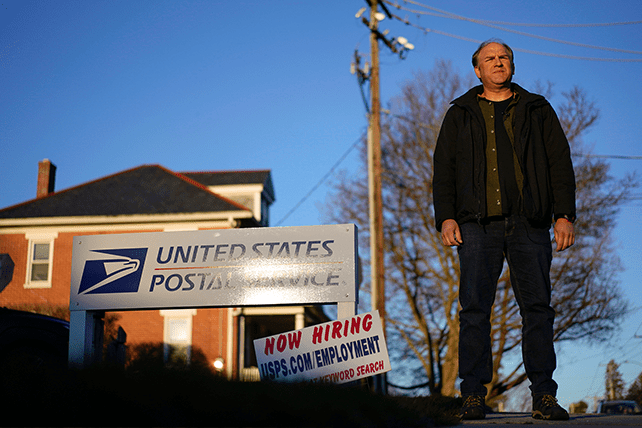(RNS) — In siding with an evangelical Christian mail carrier who quit the U.S. Postal Service after he was forced to deliver packages on Sundays, his Sabbath, the Supreme Court on Thursday (June 29) did something rare: It brought a whole panoply of U.S. religions together.
The unanimous ruling in Groff v. DeJoy clarified that employers must do more than the minimum to accommodate workers’ requests related to religious observance.
The ruling mostly vindicates Gerald Groff, a former mail carrier from Pennsylvania, who sued the post office, saying the requirement that he work on Sundays violated his deeply held belief that Sunday was his day of rest. (U.S. mail is not usually delivered Sundays, but in 2013, the USPS signed a contract with Amazon to deliver the company’s packages, including on Sundays.)
Groff was represented by First Liberty Institute, the conservative Christian legal powerhouse based in Plano, Texas.
But in ruling in favor of the Christian mail carrier, the court also united a host of non-Christian religions in the U.S., who saw the decision written by Justice Samuel Alito as a much needed corrective to the challenges they face in balancing their work with their sincerely held religious practices.
Whether it’s accommodating Sikh health care workers who are required by their faith not to shave their beards or Jewish teachers who want to take time off for religious holidays not officially recognized by the public schools or colleges where they work, the ruling has the effect of forcing employers to accommodate their worker’s religious practices.
“The court’s ruling is going to help many people, from many different faith communities across the U.S.,” said Nathan Diament, executive director for public policy for the Orthodox Union, the nation’s largest representative Orthodox Jewish organization.
The Orthodox Union was one of a diverse group of faith-based and religious liberty organizations that filed amicus or “friend of the court” briefs with the Supreme Court supporting Groff. They included the General Conference of Seventh-day Adventists, the American Center for Law and Justice, the Sikh Coalition, the Council on American-Islamic Relations, The Church of Jesus Christ of Latter-day Saints, the American Hindu Coalition, Becket Law and the Baptist Joint Commission.
Organizations opposing Groff’s petition included the Freedom From Religion Foundation, the Center for Inquiry, Americans United for Separation of Church and State and American Atheists. The latter argued the ruling would shift more work burdens onto atheists, humanists, nonreligious Americans.
In their ruling, justices clarified a decades-old Supreme Court decision that allowed employers to deny religious accommodations that would cause them more than a minor inconvenience.
Historically, Title VII of the 1964 Civil Rights Act required employers to provide religious accommodations unless they create an “undue hardship” for the business. But the Supreme Court undercut this standard in 1997 when it ruled in Trans World Airlines v. Hardison that employers need only suffer minimal hardship to deny a religious accommodation. This low threshold, referred to as a “de minimus standard,” was often used to deny religious accommodations.
While the court did not overturn Trans World Airlines v. Hardison, it clarified that the burden for employers denying religious accommodation must be substantial.

